Dear friends and Partners
“Are you OK?” I tried to gain eye contact of the obviously more than a little dazed driver. His jeans were freshly shredded, coat impregnated with the reddish ocher of Salmon River cliff-rock, and had a few fresh and bloody scrapes and bruises on his ruddy complexion. He was aimlessly walking around, staring at his twisted wreck of a Peterbilt semi-truck, jackknifed flatbed trailer, torn asunder from truck, now inches from the brink of a cliff that fell precipitously down to the turbulent icy steel gray waters of a partly frozen river. His face betrayed the obvious trauma he was still experiencing about the whole scene.
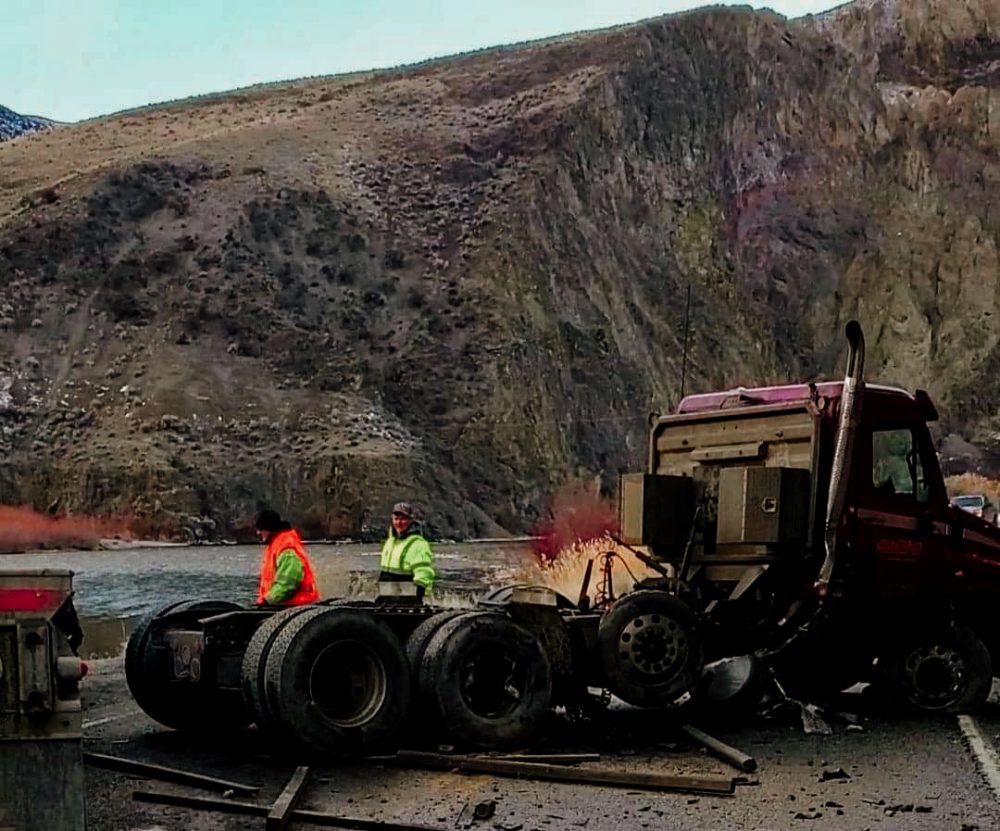
He started talking to no-one in particular, under his breath: “These curves, they fool you. You think you know them, and they surprise you.” He looked up from the wreck, and his eyes met mine. “And all of a sudden, everything unravels. And there you are. Truck rips into rock and nearly flips over. I’ve been over this road hundreds of times. And these curves.” His voice trailed off as he continued to eye the wreckage while shaking his head. The truck: totaled. Front tires literally ripped off. Fuel tanks, full, miraculously not leaking, like huge shiny Bud Light cans, next to it on the pavement.
I reached out my hand, and he took it. “I’m Glenn. From the Pahsimeroi.” I drive these roads all the time too. Can’t be too careful—and I got no blame on you.” We looked at the twisted hulk. That energy must have been transferred to his whiplashed body in some way. “Are you sure you’re OK?”
“Yeah. I’m good. I’m from Challis.” He withdrew his hand after a long shake.
As if his Challis origin was an indicator of how tough a body could be. Fact is, people from Challis are tough. I recalled the byline on the Custer County webpage I noted the other day when paying property tax. Challis is the county seat: “Custer County: what America used to be.”
The Peterbilt driver spoke again: “I guess I’ll just have to be more careful. I just misjudged this curve.”
We both looked at it. I knew it was a “broken-back” curve, in road design jargon speak, if that exists, dug from my dusty memory bank from road engineering courses I took back in forestry school. It was an easily misjudged curve, with two radii instead of one. In other words, the degree of curve changes as you complete it. Instead of simply setting the wheel for the ride, you have to recorrect your steering wheel as you go around the turn. And if you don’t, well, it’s the river or the rocks for you.
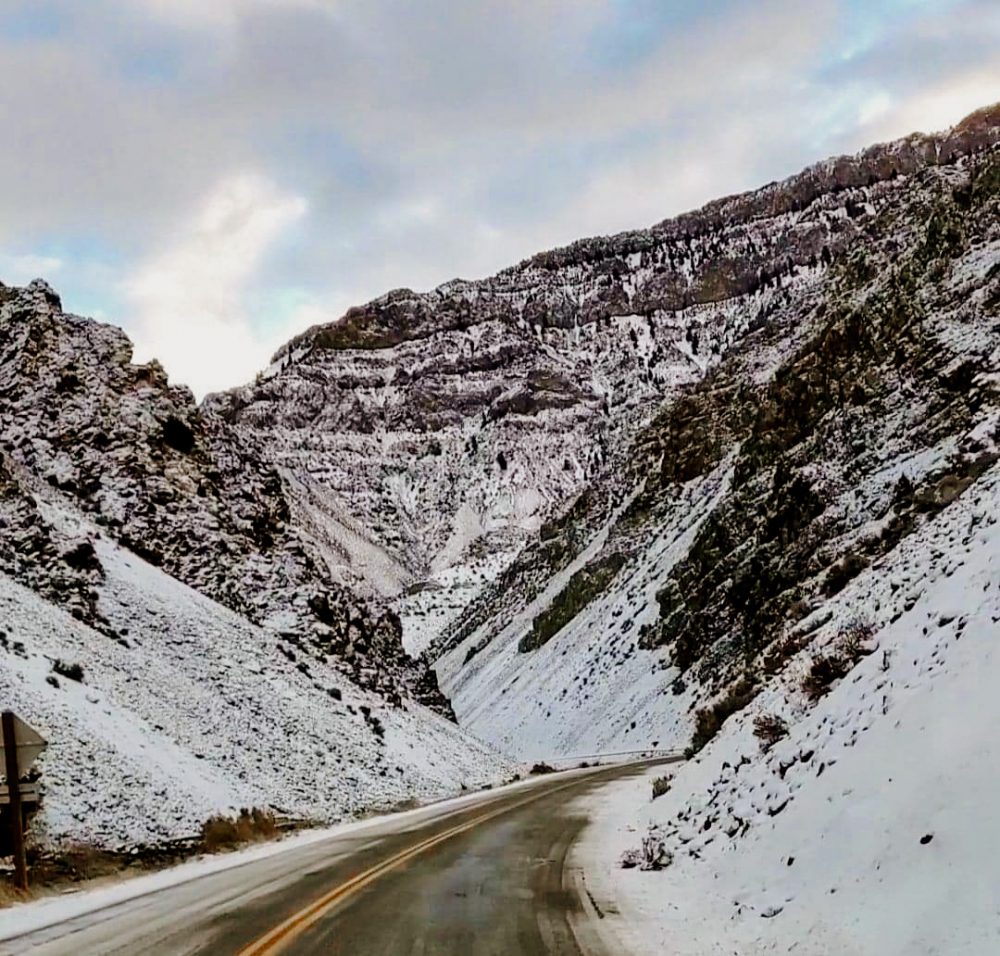
The driver started again: “You better be careful too.” He was looking past me at my loaded-with-cattle gooseneck trailer, parked just a few hundred feet back on the highway.
Challis was just about 30 miles upstream along the steep sided and often icy Salmon River Canyon on Highway 93. It was Christmas week, and the perpetual canyon shade of the cliff bounded road often left black ice on pavement at this time of year. The sun wouldn’t hit corners of the highway again until sometime in March, when the winter sun rises up to bring spring and summer to the high country. Crashes were fairly common in the canyon in winter, and this one was one of the good ones; the vehicle had not gone in the drink and the driver emerged only a little scathed.
I could see by the tracks what happened. Peterbilt hit the curve and kept going straight on the ice, hit the cliff, nearly flipped over as the right wheel attempted to climb it and instead whipped the truck around, snapping the trailer off in a split second. It was a miracle all didn’t go in the deep waters.
Many do. My mind flashed back to a turn a few miles downstream where I pulled a home health care nurse out of her Toyota hatchback, partly submerged in the frozen river waters a few years back. She was only wearing her scrubs, now soaking wet in the subzero cold, caught blindsided by black ice while heading for an appointment to one of the elderly residents of the canyon. My timber partner and I helped her up the steep rocks to the highway, put the heat on full blast, and dropped her off next to a woodstove, phone and coffeepot at the Sportsmen’s Bar, the only watering hole along the river canyon in those days. Her husband would come retrieve her from Salmon in another hour.
But with this wreck, I was stuck here. We all were. I had been driving north from the ranch on this cold and clear morning for nearly 30 minutes before I saw the flashing lights. The road was entirely blocked, and cars and pickups were getting backed up on this portion of US highway 93. This one road cuts a way straight and curvy through the heart of the American West from the Canadian border to Mexico.
I wondered if there were any other sections blocked along its over thousand-mile length.
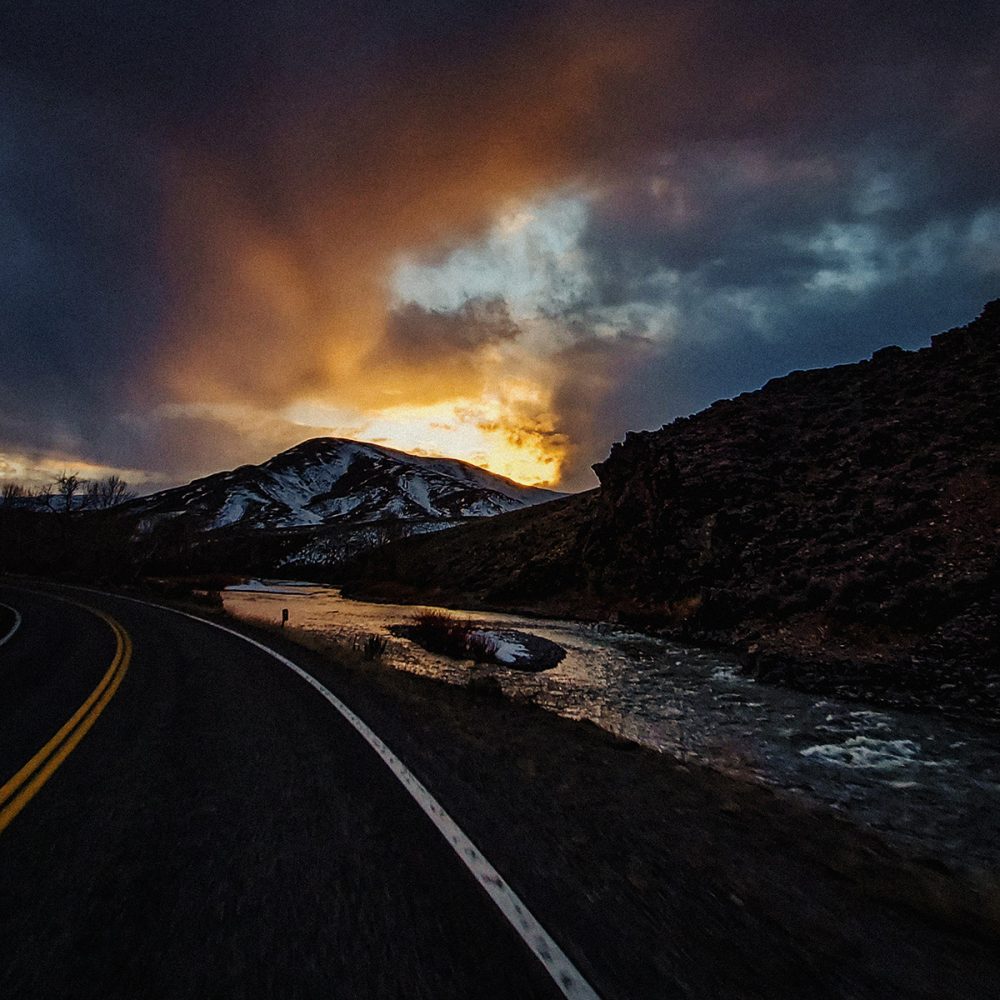
Search and Rescue had already arrived with their vehicles from Salmon, the nearest town to the north, about an hour distant, and over 200 curves (the kids counted one day on the way to church out of sheer boredom). I put on the four-ways, and had stepped out of my truck and walked over to survey the scene as well, as there was nothing else to do. It was before sunrise in the still faded light of the Salmon River canyon, and the temps were in the single digits.
With my still hot coffee in Contigo cup in my hand and border collie Clyde at my side, we started to help clear the rock and debris strewn roadway with some other folks stranded until tow truck arrived.
“Glenn! How’s it going?” It was Brian Hamilton, a longtime friend of mine from Salmon. He was wearing the yellow reflective coat of Salmon Search and Rescue, and was among the first on the scene. He was picking up debris from the wreck too.
“How long before they can clear the road, Brian?”
“Might be as long as two hours before they get a tow rig big enough to pull this mess outta here. He looked at my truck, and said “heading for Montana with some fat cattle?”
“Yep. Sure am.” Brian was raised on a ranch just up the valley from us, and knew the country well.
“You might better go through Howe,” he said.
Howe was indeed the only way, but it would add about two hundred miles to the trip. It was because we lived in a land where mountains rule, and no roads went over them due to their rugged features and 7000 feet of elevation gain. So you had to go around the entire mountain range. Howe, in microcosm was akin to “going around the Horn” instead of using the Panama Canal. I decided to wait.
As we rolled rocks off the road that the truck’s dance with the cliff wall had loosened, others came up to help. And I knew most of them. Jake, the former Challis High ag teacher walked up and asked how the family was. Frank shook my hand; he used to hunt geese on our ranch; we reflected on those times when he and his brother would place field decoys across from our ranch house in the early morning light.
As I threw my share of rocks in the river below, I asked Frank if he’d ever fished the glassy stretch of water below us. “It’s a dang good whitefish hole at this time of year,” I told him. I’ve caught a nice batch of them here on a day just like this.”
Frank hadn’t, but went on to tell me about another fish story on his part of the Salmon River nearer to his home of Challis. As he was speaking, we watched another Search and Rescue guy, Jim, throw a stick for an eager and shivering Clyde. In his usual way, Clyde wouldn’t let his new friend go; and a game of fetch among the tires, fuel tanks, and broken and twisted plastic and steel of the wreck seemed to lessen the grim nature of the scene.
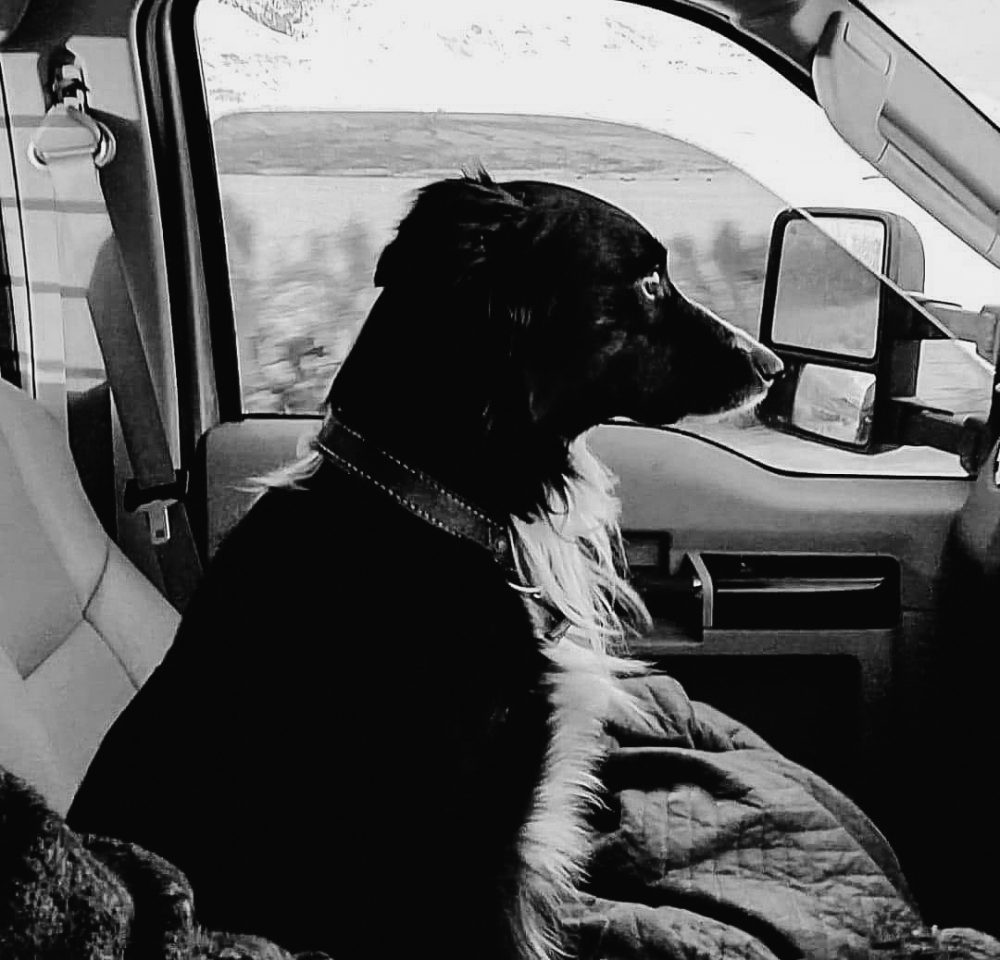
In a sudden and pleasantly hopeful surprise, the tow truck arrived from Salmon, lights flashing. I recognized the driver as he pulled cable out to try to move the wreck. He looked over at me. “Hey—Glenn. I was headed over to your place today to tow that old salvage pickup you called about last week, but I gotta get this done first.”
I smiled at him. “No problem, Bill! I can tell you got your hands full!”
In another few minutes, the semi-truck was moved out of the way. Despite the 20 or so cars and trucks waiting on both sides, the Sheriff’s deputy and search and rescue guys singled me out as the last debris was being swept off the pavement. “He goes first,” they said. “Glenn’s got live cattle on board.”
I called Clyde. He was still playing fetch with Jim on the other side of the wreck. I finished my Contigo with a last gulp of coffee, shook hands all around, and headed to my waiting cattle rig, and started rolling. The last broom cleared off a narrow pathway between cliff and wreck as I drove up, and it was wide enough by a few inches to squeeze through.
As I eased my way through, I waved at my friends and neighbors, and thought of our unique situation. Here we were, a half hour of highway miles away from home, and I knew over half of the folks at the wreck site. It’s because we live in one of the lowest density population areas in the US, decreed by the mountains, canyons and wild and inhospitable country we make our life and living in.
I glanced across the cold river, realizing that just right over there was our own grazing country, The Hat Creek Allotment. We spent the summer up in those very hills with Alderspring beeves. It felt like it was our backyard where this highway and crash occurred. Somehow, this river, these mountains and canyons are all connected to us, our living, and our neighbors.
And we all can relate to each other in some way, through the land and the peaks. Many of us make our living on the slopes of these crags—we may run cattle, log the forests, guide sportsmen, or simply hunt elk for sustenance or fish steelhead in its rivers. And it gives us this instant bond of connection through the lifeblood of living on and with the land. It makes us care for each other, too in a place where humankind can be few and far between.
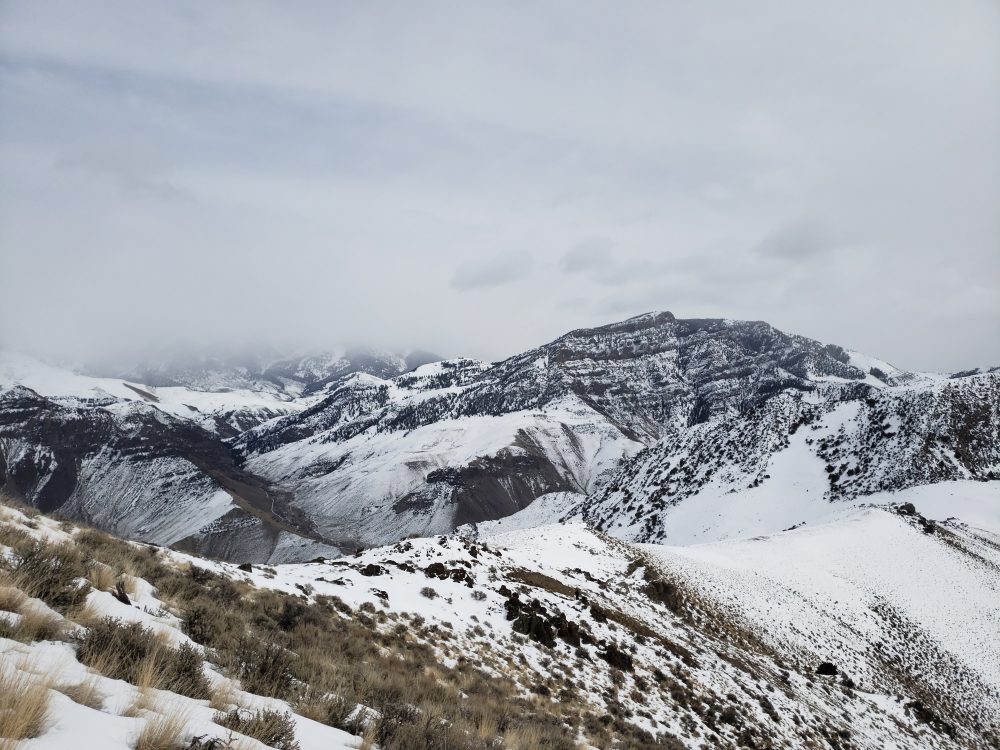
And I thought it ironic. Here we were; I haven’t seen some of these guys for years, and we’re distant from each other by even a hundred miles (some of those at the crash scene were over a hundred miles from me). Yet we know and visit with each other as if each of us were the other’s nearest neighbor, catching up on how life has been and what families are doing. I simply can’t say that in much of today’s world, especially in this time of COVID isolation when so many of us are detached from our normal circles of contact and relationships.
And when I see this, and the care and connection with people at such and unlikely spot on a frosty winter road before sunrise in a remote Rocky Mountain river canyon, my hope in humanity is restored. So fear not, friends. Relationships will restore and the human spirit will return.
It’s still there, albeit muffled by mask and mandatory distance. Humankind will rise again.
Happy Trails.
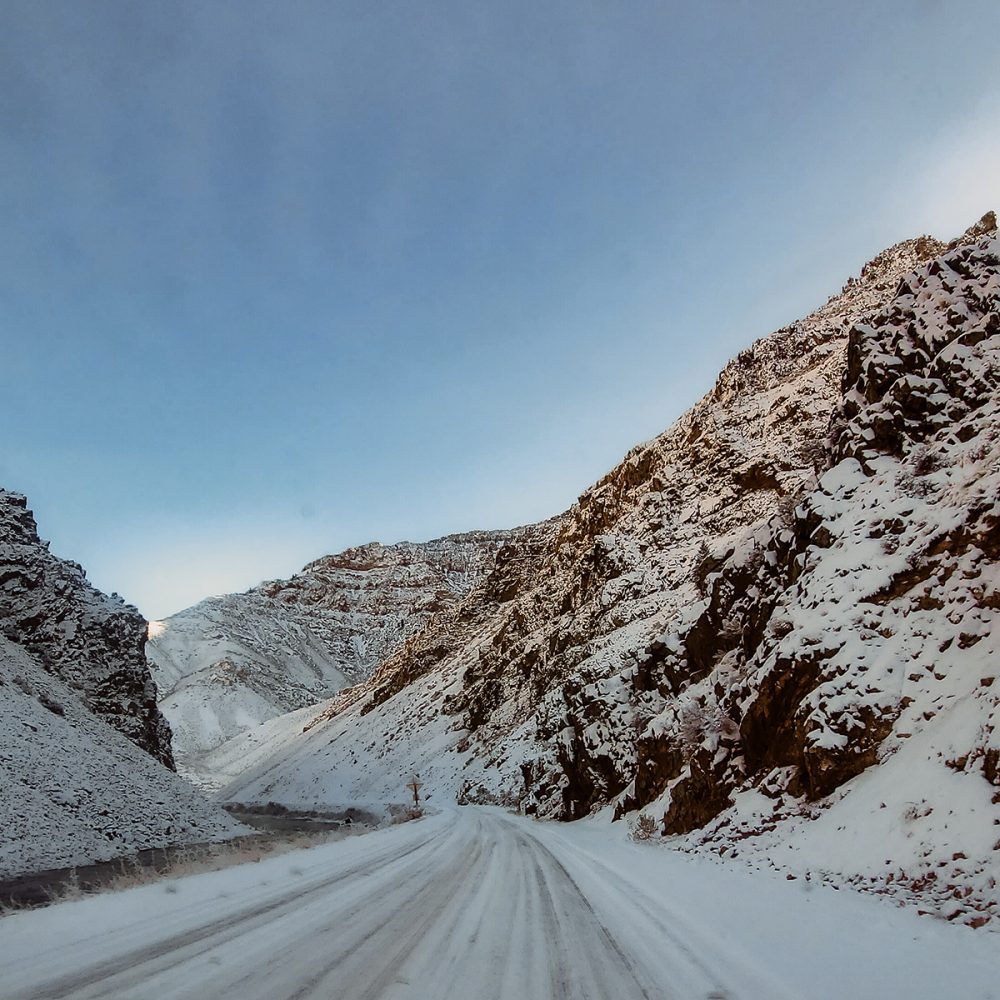

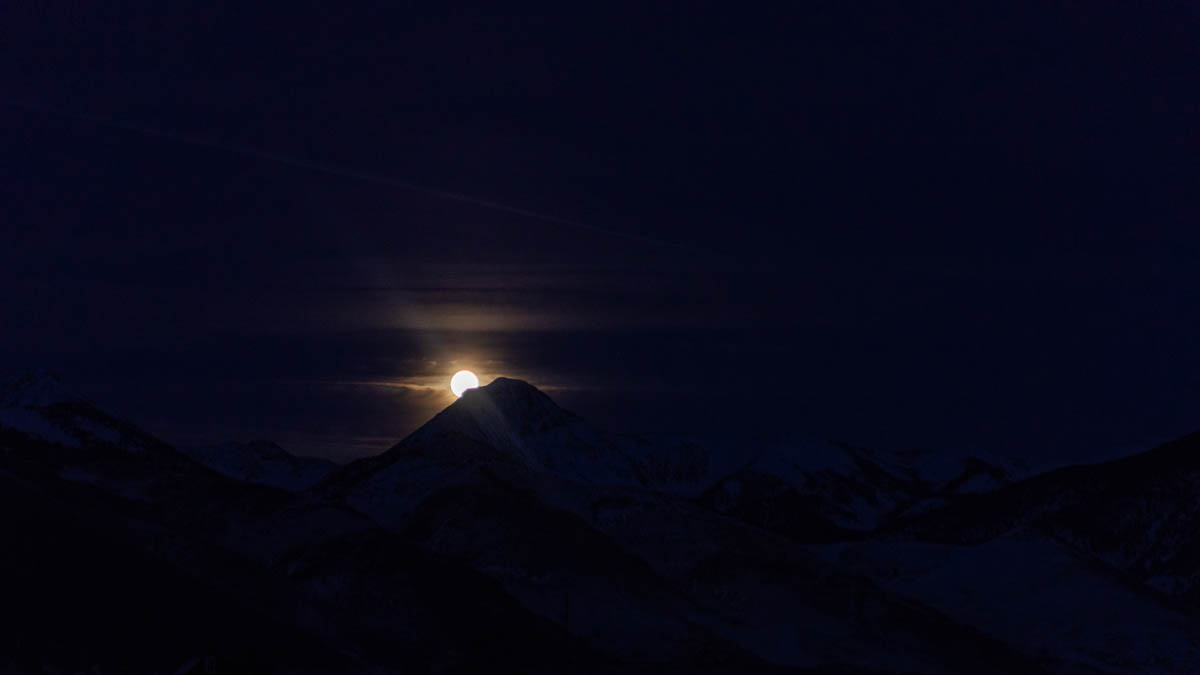
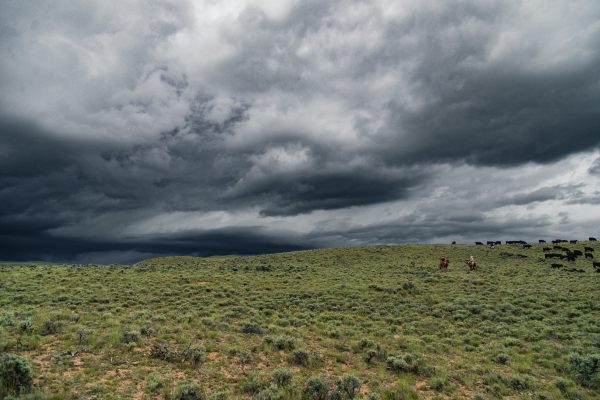
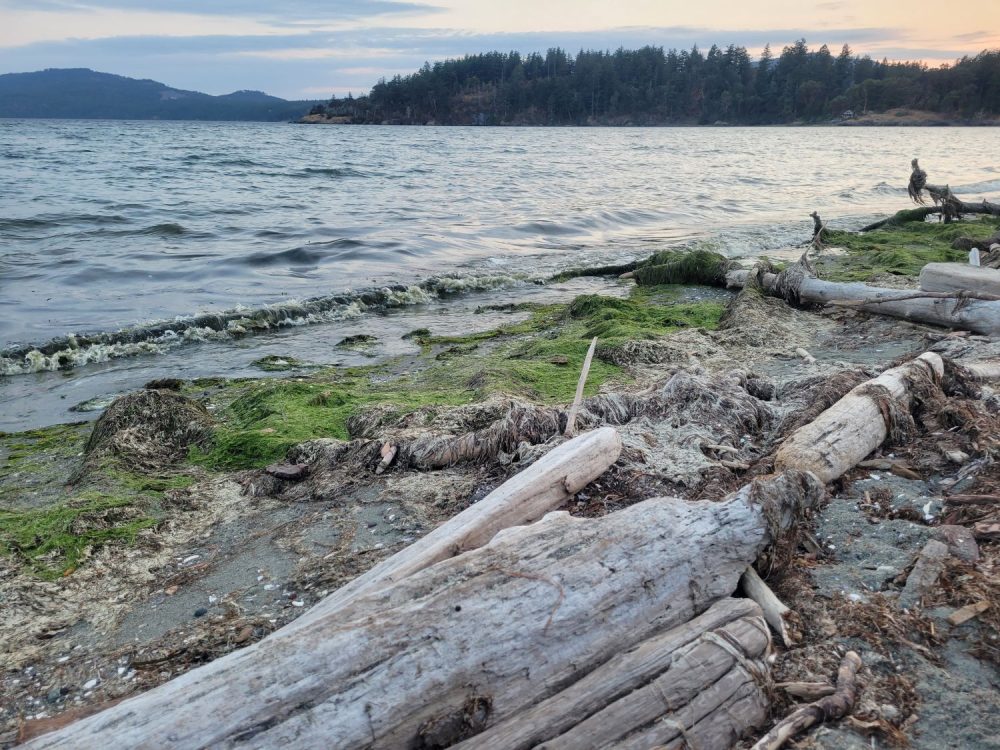

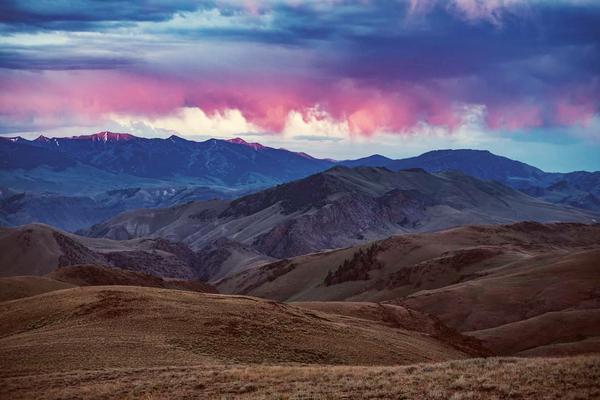
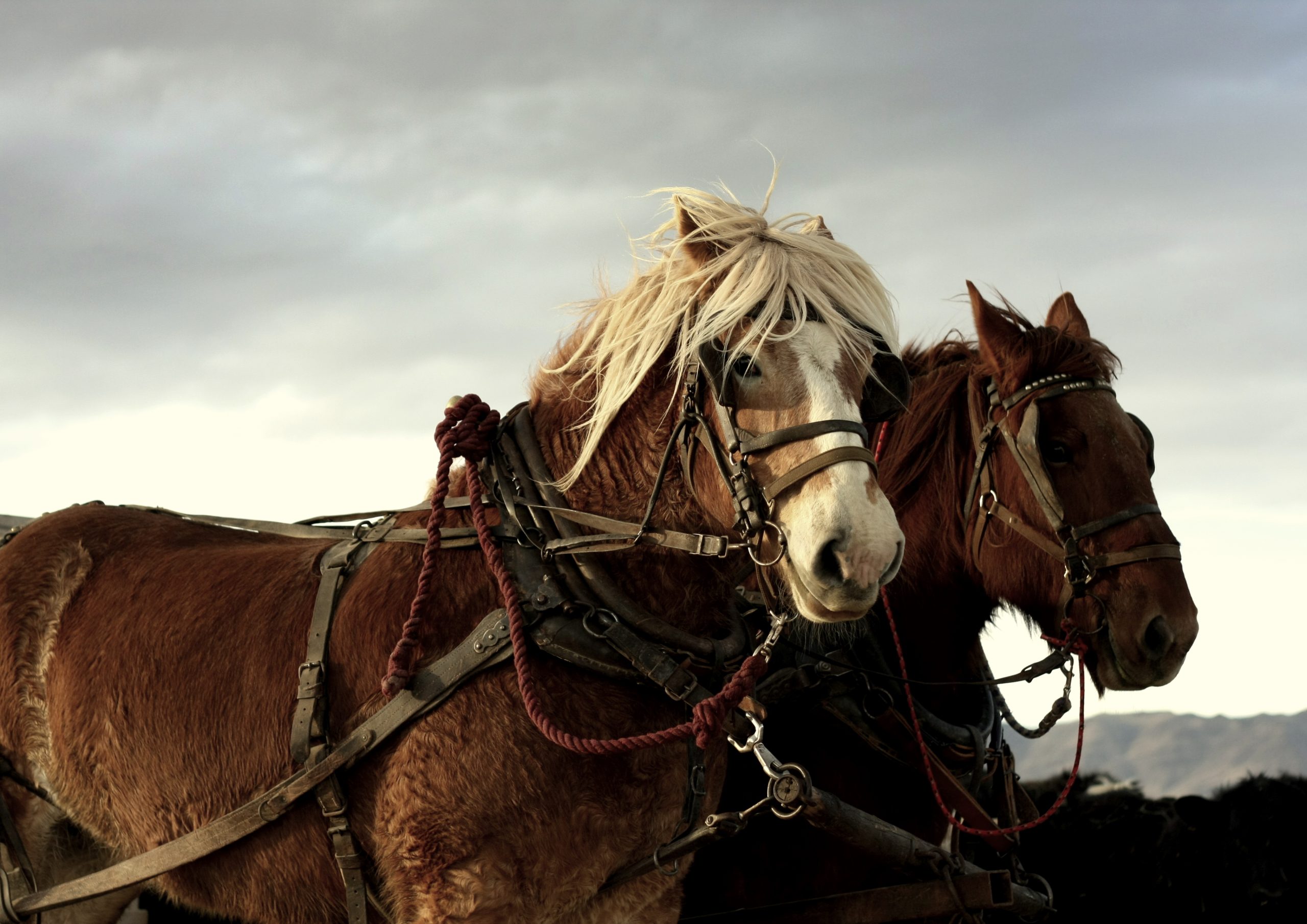
Janya
Thank you, Glenn. And I am now in love with Clyde! Godspeed to all in this story.
Shannon Weaver
What a beautiful story and so happy that accident wasn’t worse for the poor driver. You are such a poetic and descriptive writer Glenn!! Hope you and your family have a Happy New Year!
Doug and Shannon Weaver
Anthony Lombardo
Thank you for taking the time to write this, Glen. It did my heart some good.
steve schechter
Glenn, I look forward to everything you write. Many thanks to you and the whole crew for your efforts to supply us with the finest beef. Have a good winter, and stay safe!
Mike Morano
Glenn, I love all of your writing. Today, sitting here in New Jersey and pondering what just happened in Washington, DC (not that I know, really) reading your words helped heal me a bit and restore some perspective. Thank you.
Jeremy P.
Such an incredible storyteller, and a great message for your readers. I share the same sentiment, and look forward to being able to reconnect with my neighbors and community as things return to normal and we start to see the virus in our rear view mirrors. Thanks for everything that you do, on top of your husbandry with the land and animals, to make the world a better place.
Erik Storlie
I’m a faithful reader of Glenn and his other family writers. Great window into the country and the people. I know the canyon well, having driven it over fifty years of leaving Minnesota for summers in the central Idaho mountains. The Salmon River there suddenly runs narrow, swift, and deep!
Susanne
I love your musings & enjoy learning about your part of the country, your family and the ranch . You’re a gifted writer. Many thanks for sharing. Stay safe, healthy and keep on writing! We need more people like you .
Cheryl Mogensen
Thank you Glenn for such a poignant portrayal of life and the relationships that bind us together in this wild mountain west. And, thank you for the reminder of how our important relationships remain even in COVID isolation and the promise that they will resume with a stronger vigor when we climb out of this pandemic.
Joe Carbone
What an awesome story of friendship and brotherly love, even in the most dangerous of circumstances. I enjoyed reading it along with all of the posts about Alderspring you and your crew produce. It’s become my favorite account to follow. Happy Trails!
Buddy Smith
appreciate the stories so much.
Smith
Cedar Park, Tx. 78613
Henry Bowles
Well said Glenn. We all need to help each other.
Jose E Estrada
Yes Glenn, what Mike said, this trying times of ours and plenty of obstacles to maneuver, we need some soothing words and stories such as this one to provide us with a sense of reality and staying positive and not getting embroiled with disinformation delusional people we come across the social media on the internet, and unrealistic things that they say.
I’m not referring on anyone in particular, but in general, that’s what keeps me away from social media platforms.
Thank you for your stories I enjoy so much.
Luigi Mercone
A much appreciated exemplar of decency and humanity. Thank you Glen!
Kathy McDonald
You have a wonderful way with words. I enjoyed this true story so much. I really appreciate you folks sharing your life with us all.